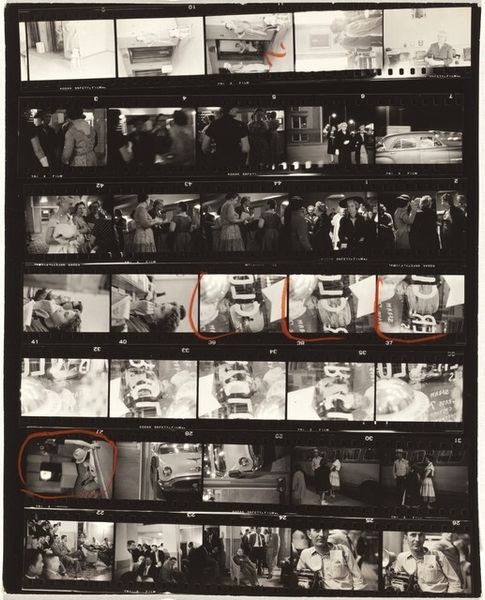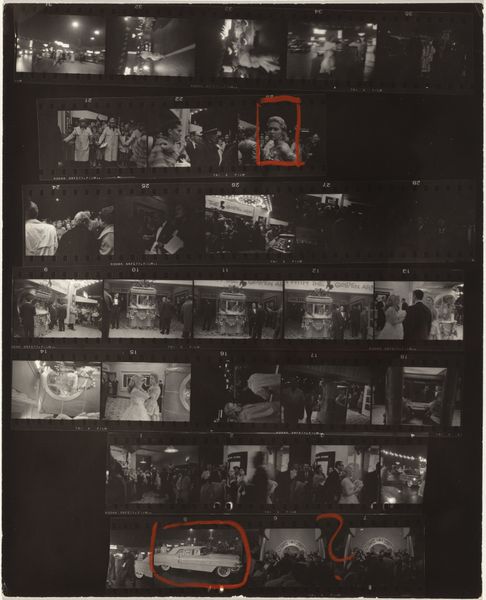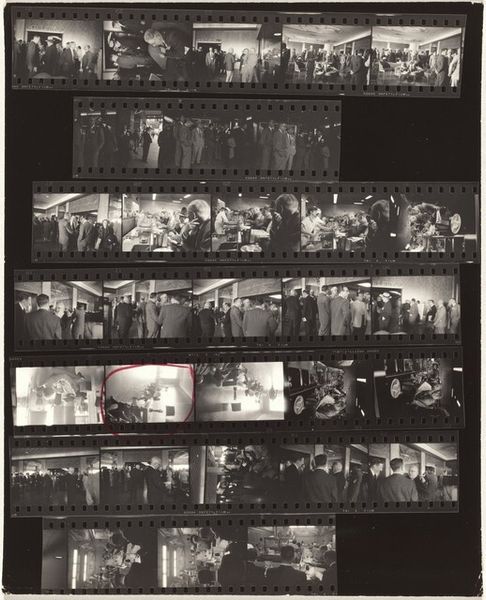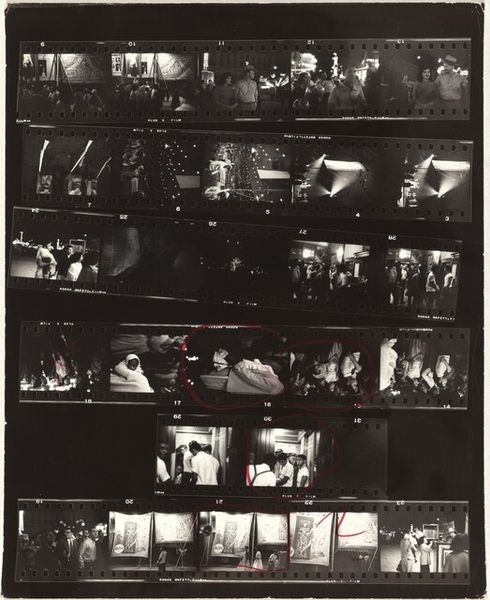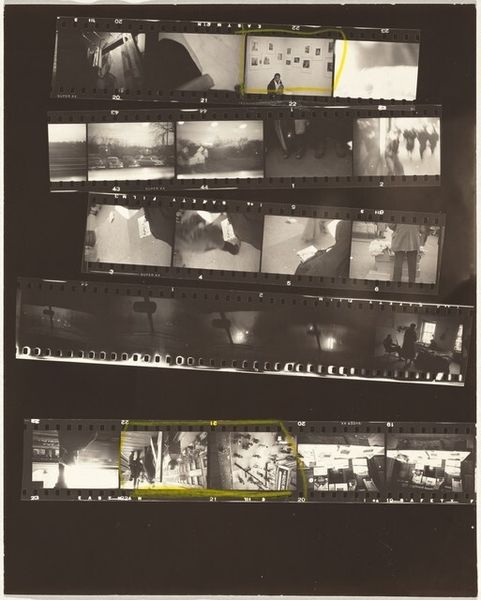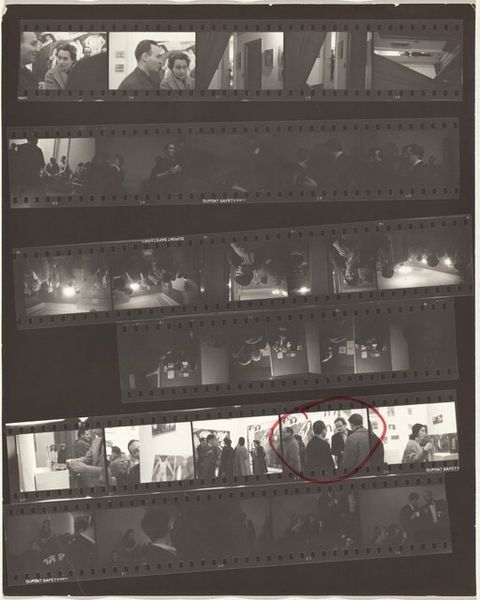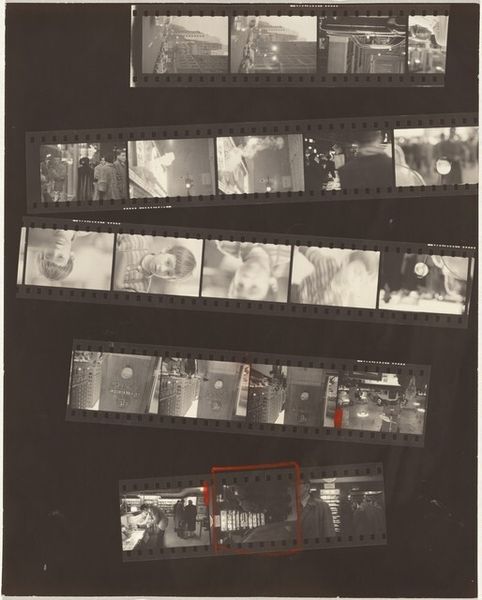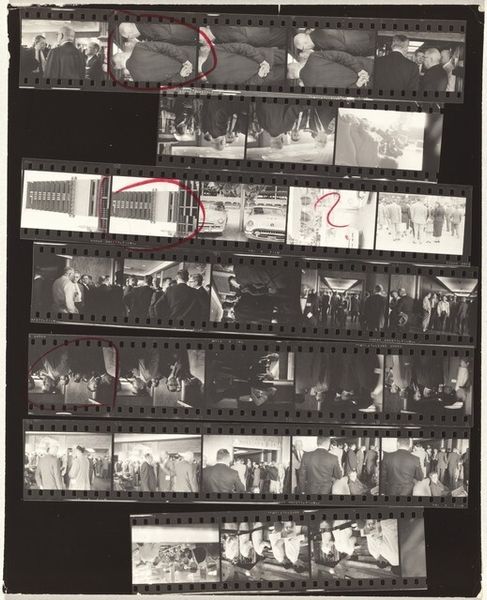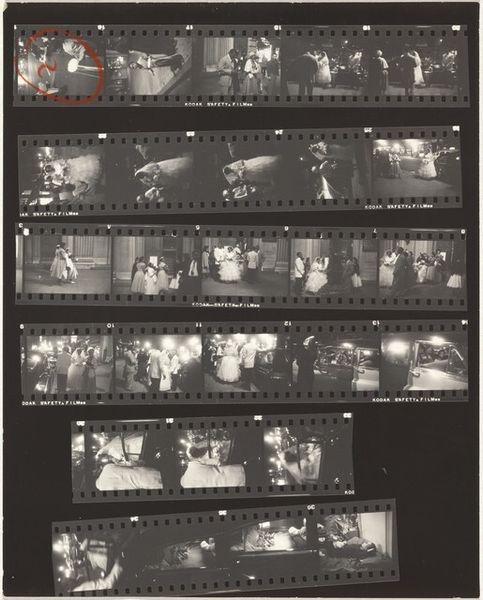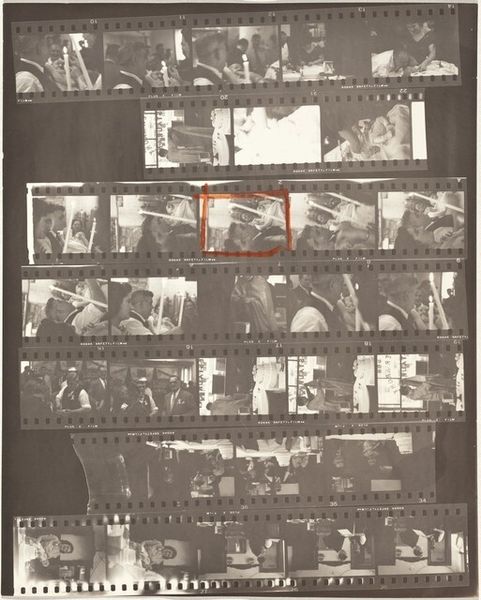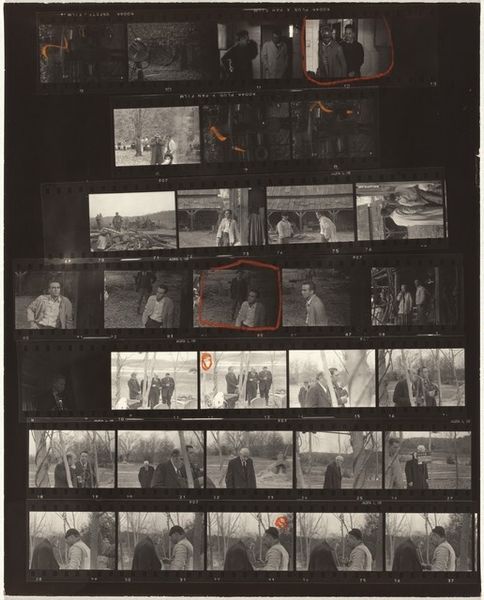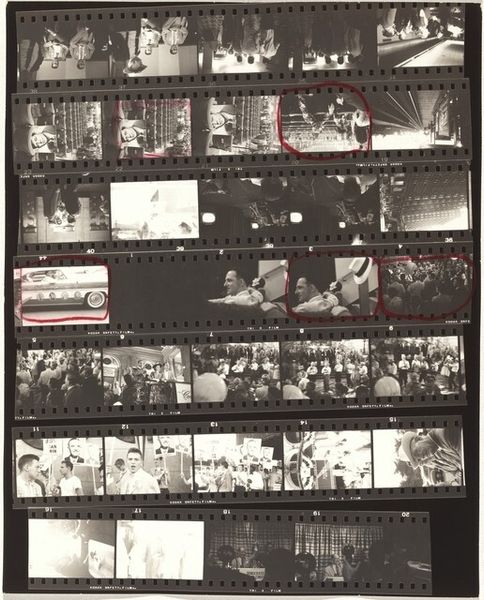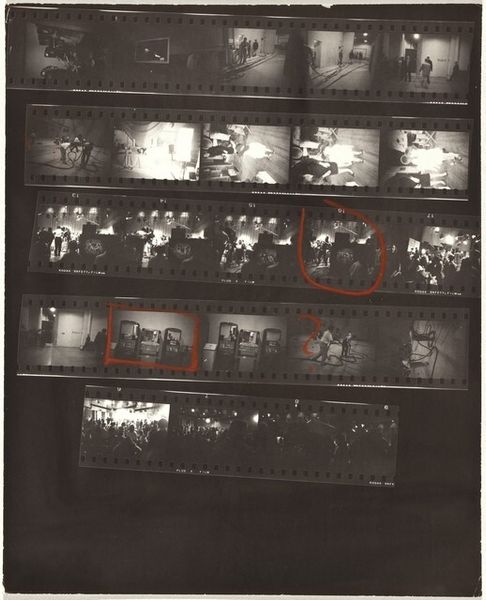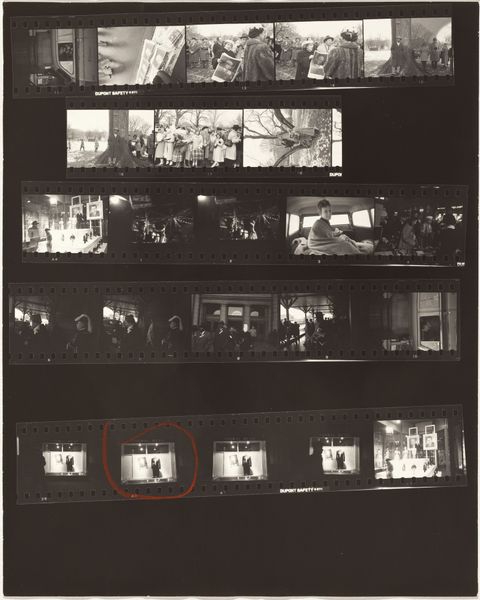
photography, gelatin-silver-print
#
film photography
#
street-photography
#
photography
#
gelatin-silver-print
#
film
#
realism
Dimensions: overall: 25.2 x 20.2 cm (9 15/16 x 7 15/16 in.)
Copyright: National Gallery of Art: CC0 1.0
Curator: Let’s discuss this gelatin silver print by Robert Frank. It's called "Juke boxes 6" and dates back to 1955. I am intrigued by the structure; it looks like the original contact sheet. Editor: It gives the photograph a raw, documentary feel. I’m immediately struck by the rows of individuals seemingly isolated in their own sonic worlds within the diner, each stationed at their jukebox. Curator: Frank’s work, especially within "The Americans," challenged conventional documentary photography. He moved away from idealized portrayals and embraced a more subjective, gritty style. These kinds of spaces, diners and roadside America, held immense cultural significance during the post-war era. Editor: Absolutely. These jukeboxes speak to an individual's desire for autonomy in a highly commercialized landscape. And the figures shown – predominantly men, wearing hats, in pensive attitudes. I wonder what their social identities are, and whether this composition serves as a reflection on the commonalities they can share in spaces built upon segregated environments. Curator: Segregation indeed defined public spaces at that time. It is impossible not to see the potential racial divides that existed within such establishments. Are these individuals united by popular tunes or further divided by social norms? Editor: That is the beauty and discomfort of Frank's lens, I think. He invites us to grapple with those complexities rather than presenting a clear-cut narrative. Even this choice, presenting the work on what looks like a contact sheet, adds to that sense of incompletion; the images not curated for our pleasure. Curator: You raise an excellent point about the contact sheet aspect adding a layer of rawness. It acknowledges the photographer's process, showing the numerous attempts before deciding on the final shot. It humanizes the process. Editor: Looking at it again, you get a feeling of quiet isolation, amplified by the repeated forms – the jukeboxes themselves acting almost like confessionals. One person to one song... what could be more intimate? Curator: It leaves me pondering the paradoxes within American culture, the promise of freedom juxtaposed with the underlying tensions that fracture communities, that persist through culture. Editor: Agreed, its fragmented quality forces us to confront uncomfortable truths about identity and societal structures. It makes me wonder what contemporary contact sheets might expose if similarly captured today.
Comments
No comments
Be the first to comment and join the conversation on the ultimate creative platform.
